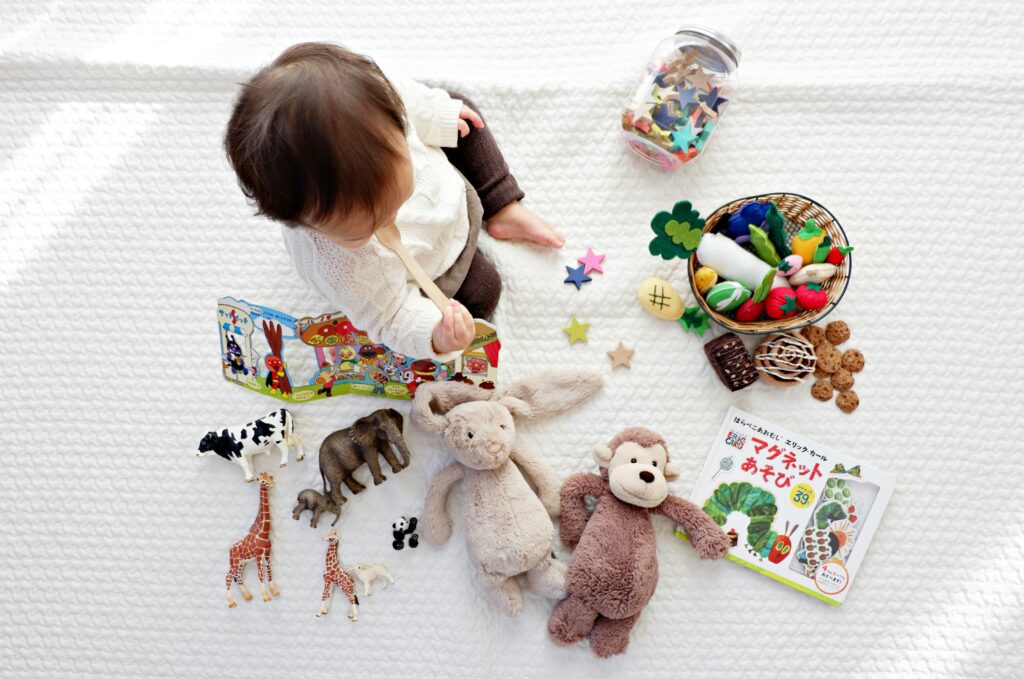If you’ve ever kept a broken lamp, a mystery cable, or a souvenir that makes you cringe, you’re not alone. Clutter has a way of convincing us it’s harmless. (Spoiler: it’s not.)

Ready to see what all that lingering rubbish really costing you? Let’s dive in.
1. Clutter leads to overeating

In a study of 100 participants, people placed in messy kitchens consumed almost 3x more calories from junk food and made poorer food choices compared to those in tidy spaces – all because of the chaotic mindset of clutter.
If you’ve ever eaten four biscuits instead of cooking dinner (because they were next to the kettle, right? right), this one’s for you.
A messy kitchen slows you down and makes it harder to spot ingredients quickly. So, it’s easier to snack mindlessly while prepping. When your space feels chaotic, your brain tends to crave quick comfort. Not to mention wasted groceries (buried behind clutter) and takeout costs stacking up.
2. Over half of people are drowning in clutter.
54% of people feel overwhelmed by clutter and don’t know where to start.
If your clutter has reached the point where you avoid certain rooms, you’re far from alone. The buildup usually isn’t about laziness. It’s about decision fatigue. When the pile of rubbish feels like too much, start with what’s easiest to toss, not what’s most meaningful.
3. Messy homes can affect how you parent

Studies show that messy homes can make it harder for parents to respond well to their kids. This can hurt children’s ability to focus and stay organized.
If you’ve ever snapped at your kid over a sock on the floor and felt terrible about it later, you’re not alone. When your space is in chaos, it’s harder to show up with patience.
Clearing out the rubbish makes more room for calm. If your home needs a serious reset, consider hiring a rubbish removal service to help lighten the load!
4. Most people still keep their ex’s stuff
70% of people keep items from their exes. And one-third of them still keep the photos.
It’s probably time to let go. It’s not “sentimental” if it still makes you angry or cringe at 2am.
5. Clutter is quietly draining your wallet
53% of young adults say they miss payments because they lose track of due dates. And 34% of adults aged 30–44 admit they overlook paper bills completely.
If you’ve ever paid a late fee for a bill that was literally on the fridge or buried under random rubbish, you’re not alone. Clearing the clutter might be the smartest budgeting move you make this year.
6. We keep stuff for sentimental reasons
42% of people keep souvenirs because of emotional ties. And over half hold on to clutter out of nostalgia.
You’re allowed to preserve memories without keeping every item. One small memory box might be all you need!
7. Organized rooms help with decision-making
In a tidy setting, 84% of people felt more confident and, more importantly, made more accurate decisions.
If you feel like you’re second-guessing yourself constantly, your environment might be draining your brain’s decision-making energy.
Even just one clean surface free of rubbish, like your desk, countertop, or side table, can give your brain somewhere to rest. From there, clarity follows!
8. You spend 5 months of your life searching for misplaced items
The average person misplaces 9 items a day, adding up to 198,743 lost things in a lifetime. That’s nearly 5 months spent retracing steps, flipping couch cushions, and muttering, “Where did I put that?”
One tray by the door or one small basket could save you hours in a year!
👉 [Check out our deep dive: Clutter Might Steal 153 Days of Your Life]
9. Millennials are losing stuff more than boomers
Millennials are twice as likely to lose things compared to older generations.
When your whole life lives in the cloud and ios ecosystems, it’s easy to forget where your keys, chargers, or even your wallet are.
A simple tech drop zone or charging station could save you from the daily “Where’s my charger?!” spiral.
10. You might be wearing only 10 % of your closet
The average woman has about €900 to €2,300 worth of clothes in her wardrobe that she doesn’t even wear.
All that unused clothing is essentially expensive rubbish, tying up cash you could be using elsewhere. If it hasn’t seen daylight since pre-pandemic brunches (and still has tags), it might be time to break up with your wardrobe’s dead weight and drop it off at your local Bring bank.
11. Textile waste has grown by 40 percent
Post-consumer textile waste grew by 40% in just ten years.
Fast fashion makes it easy to fill wardrobes with items worn once and forgotten. Multiply that across millions of people, and it turns into a mountain of textile rubbish and landfill waste. Clearing out what you no longer wear helps your home breathe a little easier, and the planet too (she’s kind of choking right now, to be honest).
12. Missed bills start with a messy desk
53% of young adults miss payments because they forget due dates or lose track of details.
If late fees sneak up on you, clutter might be to blame. Most bills etc are digital now which makes us ignore those sneaky ones that still come in the post. Unopened letters, lost passwords, and half-filled forms all add up. Your desk doesn’t have to be spotless, but giving your bills one dedicated folder could stop the stress spiral before it starts.
13. Cluttered homes raise stress hormones
People who describe their homes as cluttered have higher cortisol levels (stress hormones) throughout the day.
If your house looks like a “before” photo, your brain reads those piles of rubbish as chaos, even if you swear you know where everything is (spoiler: you don’t). Start by clearing just the area you first see when you walk in, and you’ll start to shift that feeling.
14. A clean home can improve physical health
People with cleaner homes were found to be more physically active and in better health overall.
If you’re feeling tired, low-energy, or stuck in a rut, your space could be part of it. A cluttered room filled with rubbish makes it harder to move, harder to cook, and way easier to skip self-care.
Tidying up just enough to roll out a yoga mat or prep a healthy meal can actually give your body a chance to catch up.
15. Clutter makes it harder to concentrate
Environments packed with rubbish make it harder to focus, shift attention, and finish tasks.
Ever sit down to work and instantly feel overwhelmed, even though you haven’t started yet? It’s not laziness. Your brain is already working overtime, dodging distractions like it’s in a laser maze (except the lasers are random receipts and tangled chargers).
Why these stats matter
Because they show clutter, although it might look simple to tackle, it is actually a complex problem. Clutter is caused by many factors: lack of time, energy, and will to deal with it. So, it just piles up. And over time, rubbish in your surroundings shapes how people think, feel, and move through their day (usually while stepping over that horrible Lego piece).
Most people don’t realize how much time, money, or peace they’ve lost until they finally start clearing things out. These stats are proof it’s time to finally take the reins. .
When it’s too much to handle alone
Sometimes, decluttering feels like trying to untangle a lifetime of “I might need this later.” Our team can help you take back control!
👉 Learn about our rubbish removal services here.
Image credits
- HiveBoxx
- Szabo Viktor
- Jessica Lewis
- Rifki Kurniawan
- Ferenc Horvath
- Waldemar
- Priscilla Du Preez
- Nguyễn Hiệp
- Emil Kalibradov
- Marek Studzinski
- www.freepik.com







